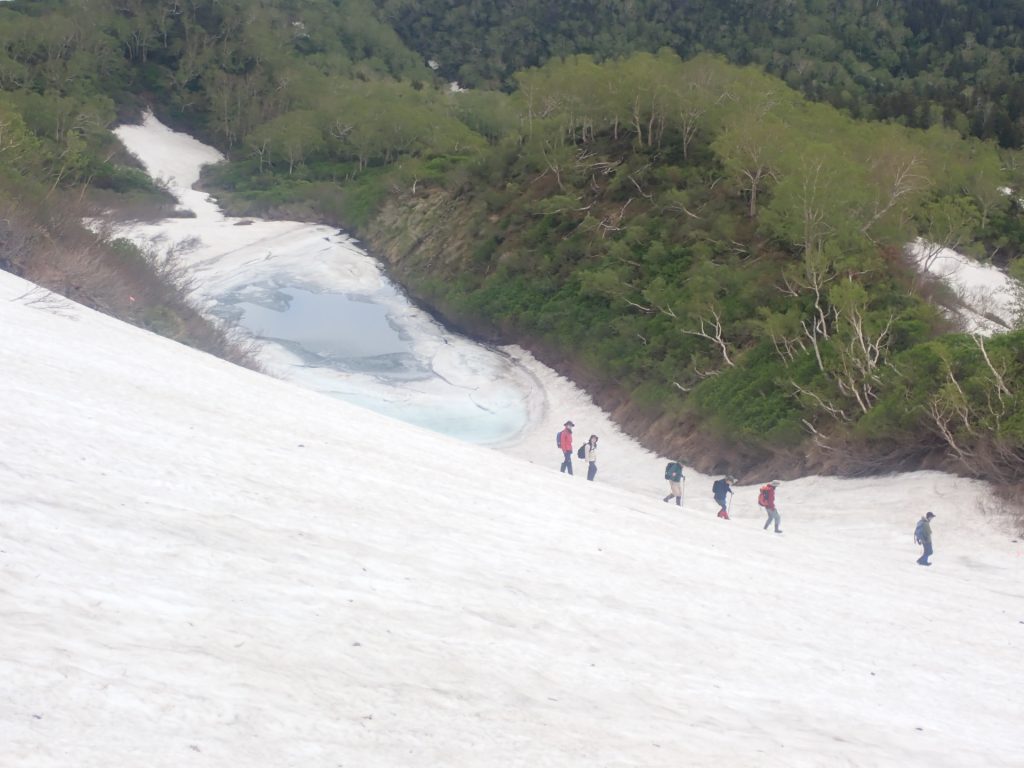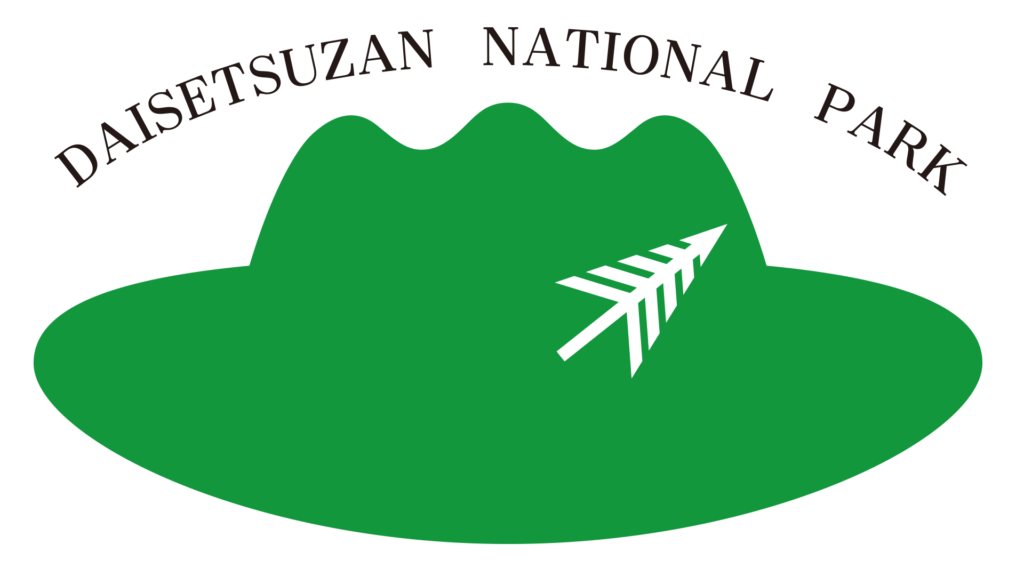Hokkaido’s high latitude means that despite the Daisetsuzan mountain range’s relatively low altitude (around 2,000m), its weather and climate are comparable to the 3,000m mountains of Honshu.
(Kogen Onsen Numa-Meguri Hiking Course in late June)

Hiking in the Daisetsuzan Range allows full immersion in nature, but requires each hiker to take responsibility and make sound decisions to mitigate risk.
Incidents requiring search and rescue happen frequently – please take all necessary precautions.
1.Hike Preparation
- Check the latest trail information.
Check in advance for information on weather, brown bear sightings, snow cover, water sources, and unpaved access road conditions/closures - Submit a hiking plan. Submit
Submit your plans to the nearest police station or police box
Hiking Plan (e-mail submission) (hokkaido.lg.jp)
Please consider purchasing mountain insurance. For Japan residents, Cocoheli (rescue helicopter beacon) is recommended.
【Hokkaido Police Safe Hiking Information Website】
https://www.police.pref.hokkaido.lg.jp/info/chiiki/sangaku/sangaku-top.html
2.Hiking Gear
From mountain opening till mid-August
now cover remains in places in the Daisetsuzan Range even in summer. Light crampons (instep or spikes) are necessary in some places earlier in the summer season.
Hypothermia is a real risk even in summer, if hikers are caught out in worsening weather.
Clothing made of synthetic fibers are recommended.
Use an easy-to-adjust clothing layering system that allows for good body-temperature control.
Instagram (mountain opening till mid-August)Late August to late September (Autumn foliage period)
In late August, leaves in summit areas begin to change color.
Snowfall is possible in September. Make extra sure to pack cold-weather clothing such as a fleece, down jacket, and other warm clothing.
Daylight hours shorten in September. Start hiking early, and make plans that allow plenty of time should anything go wrong. (Late September sunset is around 5:00 p.m.)
Instagram (mid August ~September)October~May
The beginning of October snow falls around the peaks of Daisetsuzan, and trails is covered with snow.
Poor visibility due to snowstorm、there is the danger of having an accident.
Check the latest weather forecast, be careful of avalanches before hiking.
Instagram
Summer (day trip) to Autumn Foliage Season
| Rain gear (jacket & pants) | Warm clothes(フリース、ダウンジャケット) | Sunhat and warm hat | Gloves |
| Map (bring a paper map too – don’t rely solely on hiking apps) | GPS | Mobile battery | Headlamp |
| Whistle / bear bell | Bear spray(please practice how to use beforehand) | Food and snacks | Water (at least 1.5L in summer) / Hot drink |
| Portable toilet (W.A.G. bag) | Cash (some toilets, huts and campsites require a fee for use) | Medicine / First-aid kit | Trekking poles with caps CHECK |
| Light crampons/spikes (snow-covered areas remain even in summer) | Sunscreen | Sunglasses | Waterproof backpack cover |
Additional Equipment for Overnight Hikes
Tent | Camping mat | Water filter | Sleeping bag |
Portable stove | Fuel | Change of clothes |
